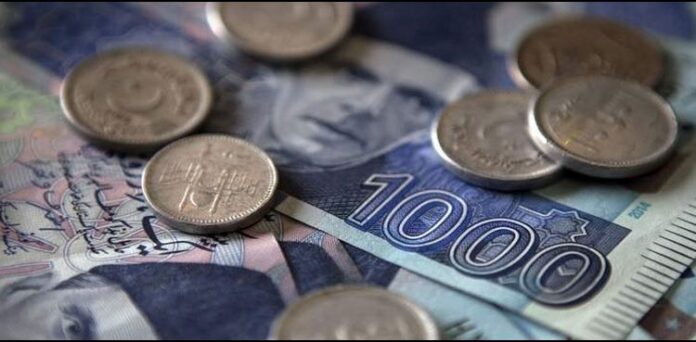ISLAMABAD: The meeting of the Monetary and Fiscal Policies Coordination Board was held on Wednesday to review the impact of fiscal and monetary policies on economic growth, inflation, investment and the external sector.
The meeting, which was held under the chairmanship of Adviser to Prime Minister on Finance and Revenue Dr Abdul Hafeez Sheikh, was attended by Adviser to PM on Commerce Abdul Razzaq Dawood, State Bank of Pakistan Governor Reza Baiq, planning commission deputy chairman, finance secretary and two eminent economists Dr Asad Zaman and Dr Farrukh Iqbal.
Reviewing the fiscal policy, the board observed that there is a need to narrow the fundamental revenue-expenditure gap and the export-import gap by ensuring prudent expenditure management and efficient resource mobilisation strategy.
The meeting also reviewed the fundamentals of economy and the performance of the government decisions like upward adjustment in gas and electricity prices, market-based exchange rate adjustments, increase in interest rate etc.
The board also discussed the options to enhance the economic activities in potential areas of the economy with targeted policy interventions. Possible options were also deliberated to control price hike in the country.
It was informed that the pressure on the external sector has also been relieved with the first tranche of IMF Extended Fund Facility, activation of the Saudi oil facility and increase in exports. This has not only supported the balance of payment but also strengthen the market confidence.
Furthermore, additional financial support from other development and bilateral partners will support the stability and inclusive growth. The current account balance has shown a sign of improvement due to decline in trade deficit and increase in inflows of workers’ remittances. However, slower inflows of Foreign Direct Investment are a challenge.
It was also highlighted that the government is making the best efforts to operationalise the special economic zones and the export processing zones to attract FDI at the earliest.
It was emphasized that the policy rate may be regulated in a way to confine external sector vulnerability by focusing and prioritizing the export oriented sectors to generate more exportable surplus and become more competitive. It was agreed that SMEs sector should be uplifted by providing access to finance that will contribute to generate export surplus and to create jobs. Unnecessary imports that have eroded the competitive edge of the domestic industry are required to be restricted. This will enhance the inclusive economic activities and improve socio-economic condition of common man at large in the country.
Keeping in view, the increased debt serving, lesser resources for public services and tight monetary policy the need for consistent and deep-rooted structural reforms was emphasized. It was also agreed that appropriate policy measures will be adopted to curtail fiscal deficit during the current fiscal year.
While concluding the meeting, the finance adviser highlighted that this platform provides an opportunity to review the current economic situation for bringing consistency in monetary, fiscal and exchange rate policies. He also urged that board needs to meet on a quarterly basis to have meaningful deliberations.

























